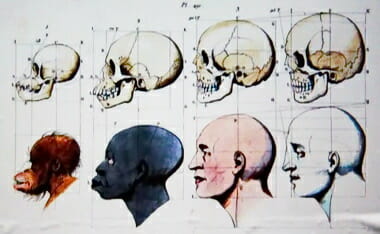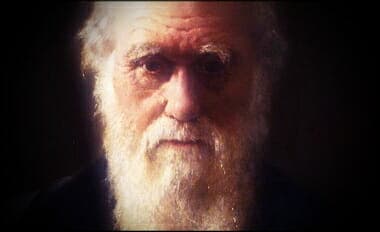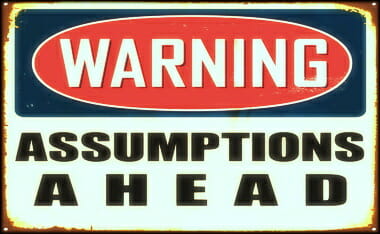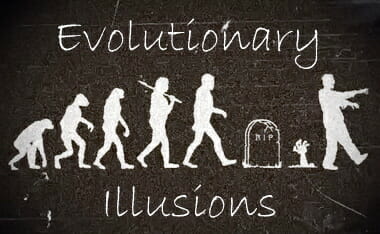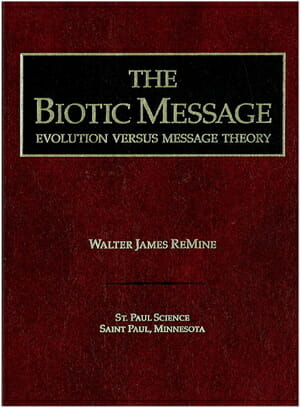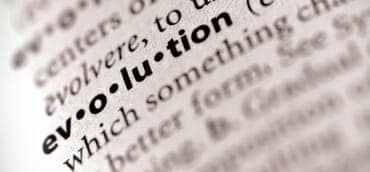This is not to suggest that new paradigms triumph ultimately through some mystical aesthetic. On the contrary, very few men desert a tradition for these reasons alone. Often those who do turn out to have been misled. But if a paradigm is ever to triumph it must gain some first supporters, men who will develop it to the point where hardheaded arguments can be produced and multiplied. And even those arguments, when they come, are not individually decisive. Because scientists are reasonable men, one or another argument will ultimately persuade many of them. But there is no single argument that can or should persuade them all. Rather than a single group conversion, what occurs is an increasing shift in the distribution of professional allegiances.
At the start a new candidate for paradigm may have few supporters, and on occasions the supporters’ motives may be suspect. Nevertheless, if they are competent, they will improve it, explore its possibilities, and show what it would be like to belong to the community guided by it. And as that goes on, if the paradigm is one destined to win its fight, the number and strength of the persuasive arguments in its favor will increase. More scientists will then be converted, and the exploration of the new paradigm will go on. Gradually the number of experiments, instruments, articles, and books based upon the paradigm will multiply. Still more men, convinced of the new view’s fruitfulness, will adopt the new mode of practicing normal science, until at last only a few elderly hold-outs remain.
Thomas S. Kuhn, The Structure of Scientific Revolutions, 2nd Edition (Chicago, IL: Chicago University Press, 1970), 158-159
(This is recovered audio from Vimeo*) I wanted to isolate how Denis Noble defines “what a gene is”? To wit, a great question starts out the above video — and as science advances, the neo-Darwinian model weakens immensely. See Dr. Noble’s lecture on this (here:
British Biologist Denis Noble Debunks… ). I do wish to add that biology… our physiology really, is also made via influences on the quantum level. ALL THIS is to say that the simplistic view of “gene to organism” is a lagging theory NOT based in current science… AND, it makes the irreducible complexity issue worse for the naturalist.
A great definition of the Modern Synthesis can be found HERE
The first two articles are a report about the Royal Society meeting in regards to the failure of the neo-Darwinian model. The Royal Society is the world’s most distinguished and historic scientific organizations. The first article is an introduction to the upcoming event, the second is a partial description of it. What follows it are articles from scientific literature calling into question the General Theory of Evolution (GTE/NDT).
- SCIENCE ALERT, “The world’s top biologists have met to discuss whether we should update evolution: Bringing Darwin’s theory into the 21st century,” Nov. 28, 2016
The world’s top biologists have met to discuss whether we should update evolution: Bringing Darwin’s theory into the 21st century. (Science Alert)
Evolutionary biology has helped scientists understand why the world looks the way it does for more than 150 years, since Charles Darwin released On the Origin of Species back in 1859.
But a team of researchers has now proposed an update to our current understanding of evolution – one that could completely shift our understanding of how species evolve.
Some of the world’s best known biologists just converged in London as part of a Royal Society meeting to discuss if it’s time to upgrade one of the most fundamental theories in science.
[….]
The researchers also argue that natural selection isn’t necessarily the primary force in evolution – the limitations of development and the environments organisms live in can also play a role.
- MINA, “Scientists see the obvious, confirm Darwinism is Broken,” Dec. 14, 2016
Darwinian theory is broken and may not be fixable. That was the takeaway from a meeting last month organized by the world’s most distinguished and historic scientific organization, which went mostly unreported by the media.
The three-day conference at the Royal Society in London was remarkable in confirming something that advocates of intelligent design (ID), a controversial scientific alternative to evolution, have said for years. ID proponents point to a chasm that divides how evolution and its evidence are presented to the public, and how scientists themselves discuss it behind closed doors and in technical publications. This chasm has been well hidden from laypeople, yet it was clear to anyone who attended the Royal Society conference, as did a number of ID-friendly scientists.
[….]
The opening presentation at the Royal Society by one of those world-class biologists, Austrian evolutionary theorist Gerd Müller, underscored exactly Meyer’s contention. Dr. Müller opened the meeting by discussing several of the fundamental “explanatory deficits” of “the modern synthesis,” that is, textbook neo-Darwinian theory. According to Müller, the as yet unsolved problems include those of explaining:
-Phenotypic complexity (the origin of eyes, ears, body plans, i.e., the anatomical and structural features of living creatures);
-Phenotypic novelty, i.e., the origin of new forms throughout the history of life (for example, the mammalian radiation some 66 million years ago, in which the major orders of mammals, such as cetaceans, bats, carnivores, enter the fossil record, or even more dramatically, the Cambrian explosion, with most animal body plans appearing more or less without antecedents); and finally
-Non-gradual forms or modes of transition, where you see abrupt discontinuities in the fossil record between different types.
As Müller has explained in a 2003 work (“On the Origin of Organismal Form,” with Stuart Newman), although “the neo-Darwinian paradigm still represents the central explanatory framework of evolution, as represented by recent textbooks” it “has no theory of the generative.” In other words, the neo-Darwinian mechanism of mutation and natural selection lacks the creative power to generate the novel anatomical traits and forms of life that have arisen during the history of life. Yet, as Müller noted, neo-Darwinian theory continues to be presented to the public via textbooks as the canonical understanding of how new living forms arose – reflecting precisely the tension between the perceived and actual status of the theory that Meyer described in “Darwin’s Doubt.”
Much of the conference after Müller’s talk did discuss various other proposed evolutionary mechanisms. Indeed, the prime movers in the Royal Society event, Müller, James Shapiro, Denis Noble, and Eva Jablonka – known to evolutionary biologists as the “Third Way of Evolution” crowd, neither ID theorists nor orthodox Darwinists – have proposed repairing the explanatory deficits of the modern synthesis by highlighting evolutionary mechanisms other than random mutation and natural selection. Much debate at the conference centered around the question of whether these new mechanisms could be incorporated into the basic population genetics framework of neo-Darwinism, thus making possible a new “extended” evolutionary synthesis, or whether the emphasis on new mechanisms of evolutionary change represented a radical, and theoretically incommensurable, break with established theory. This largely semantic, or classificatory, issue obscured a deeper question that few, if any, of the presentations confronted head on: the issue of the origin of genuine phenotypic novelty – the problem that Müller described in his opening talk.
Indeed, by the end of Day 3 of the meeting, it seemed clear to many of our scientists, and others in attendance with whom they talked, that the puzzle of life’s novelties remained unsolved – if, indeed, it had been addressed at all. As a prominent German paleontologist in the crowd concluded, “All elements of the Extended Synthesis [as discussed at the conference] fail to offer adequate explanations for the crucial explanatory deficits of the Modern Synthesis (aka neo-Darwinism) that were explicitly highlighted in the first talk of the meeting by Gerd Müller.”
[….]
Rather, these complex behaviors were taken as givens, leaving the critical question of their origins more or less untouched. While there is abundant evidence that animals can learn and transmit new behaviors to their offspring – crows in Japan, for instance, have learned how to use automobile traffic to crack open nuts – all such evidence presupposes the prior existence of specific functional capacities enabling observation, learning, and the like. The evolutionary accounts of niche construction theory therefore collide repeatedly with a brick wall marked “ORIGINAL COMPLEX FUNCTIONAL CAPACITY REQUIRED HERE” – without, or beyond which, there would simply be nothing interesting to observe.James Shapiro’s talk, clearly one of the most interesting of the conference, highlighted this difficulty in its most fundamental form. Shapiro presented fascinating evidence showing, contra neo-Darwinism, the non-random nature of many mutational processes – processes that allow organisms to respond to various environmental challenges or stresses. The evidence he presented suggests that many organisms possess a kind of pre-programmed adaptive capacity – a capacity that Shapiro has elsewhere described as operating under “algorithmic control.” Yet, neither Shapiro, nor anyone else at the conference, attempted to explain how the information inherent in such algorithmic control or pre-programmed capacity might have originated. …
So one should be aware, while almost all the info posted here are from evolutionists or journals and magazines in the evolutionary field of study, intelligent design theorists have been ringing this bell for a LONG time. The more recent line of thinking that has devestated neo-Darwinian thinking the most started in 1986 with Michael Denton’s Evolution: A Theory In Crisis. Then came Phillip Johnson’s 1990 book, Darwin on Trial. Then came Darwin’s Black Box by Michael Behe (1996). (I would include in the mix a 1993 book by a non-theist, Richard Milton entitled Shattering the Myths of Darwinism.)
Here are some key definitions defined and built upon by Dr. Jay Richards:
Scientific Journals/Magazines
Now, here are some journal or science magazine partial comments that call into question the Darwinian theory:
- NEW SCIENTIST, “Evolution evolves: Beyond the selfish gene — For more than 150 years it has been one of science’s most successful theories, but we need to rethink evolution for the 21st century,” Sept. 21, 2016
…Some biologists are trying to shoehorn the new knowledge into traditional evolutionary thinking. Others, myself included, believe a more radical approach may be required. We don’t deny the roles of genetic inheritance and natural selection, but think we should look at evolution in a markedly different way. It is time for the theory of evolution to evolve.
- NATURE, “Does evolutionary theory need a rethink?” Oct 8, 2014
Does evolutionary theory need a rethink? Yes, urgently
Without an extended evolutionary framework, the theory neglects key processes, say Kevin Laland and colleagues.
Charles Darwin conceived of evolution by natural selection without knowing that genes exist. Now mainstream evolutionary theory has come to focus almost exclusively on genetic inheritance and processes that change gene frequencies.
Yet new data pouring out of adjacent fields are starting to undermine this narrow stance. An alternative vision of evolution is beginning to crystallize, in which the processes by which organisms grow and develop are recognized as causes of evolution.
Some of us first met to discuss these advances six years ago. In the time since, as members of an interdisciplinary team, we have worked intensively to develop a broader framework, termed the extended evolutionary synthesis (EES), and to flesh out its structure, assumptions and predictions. In essence, this synthesis maintains that important drivers of evolution, ones that cannot be reduced to genes, must be woven into the very fabric of evolutionary theory.
We believe that the EES will shed new light on how evolution works. We hold that organisms are constructed in development, not simply ‘programmed’ to develop by genes. Living things do not evolve to fit into pre-existing environments, but co-construct and coevolve with their environments, in the process changing the structure of ecosystems.
The number of biologists calling for change in how evolution is conceptualized is growing rapidly. Strong support comes from allied disciplines, particularly developmental biology, but also genomics, epigenetics, ecology and social science. We contend that evolutionary biology needs revision if it is to benefit fully from these other disciplines. The data supporting our position gets stronger every day….
- NEW SCIENTIST, “The chaos theory of evolution,” Oct 13, 2010
…Palaeoecologists like me are now bringing a new perspective to the problem. If macroevolution really is an extrapolation of natural selection and adaptation, we would expect to see environmental change driving evolutionary change. Major climatic events such as ice ages ought to leave their imprint on life as species adapt to the new conditions. Is that what actually happens?
[….]
“The link between environmental change and evolutionary change is weak – not what Darwinists might have predicted”
[….]
This view of life leads to certain consequences. Macroevolution is not the simple accumulation of microevolutionary changes but has its own processes and patterns. There can be no “laws” of evolution….
- JOURNAL OF EXPERIMENTAL BIOLOGY, “Epigenetics: Scope And Mechanisms | Evolution beyond neo-Darwinism: a new conceptual framework,” 2015 (218: 7-13); doi: 10.1242/jeb.106310.
Experimental results in epigenetics and related fields of biological research show that the Modern Synthesis (neo-Darwinist) theory of evolution requires either extension or replacement. This article examines the conceptual framework of neo-Darwinism, including the concepts of ‘gene’, ‘selfish’, ‘code’, ‘program’, ‘blueprint’, ‘book of life’, ‘replicator’ and ‘vehicle’. This form of representation is a barrier to extending or replacing existing theory as it confuses conceptual and empirical matters. These need to be clearly distinguished. In the case of the central concept of ‘gene’, the definition has moved all the way from describing a necessary cause (defined in terms of the inheritable phenotype itself) to an empirically testable hypothesis (in terms of causation by DNA sequences). Neo-Darwinism also privileges ‘genes’ in causation, whereas in multi-way networks of interactions there can be no privileged cause. An alternative conceptual framework is proposed that avoids these problems, and which is more favourable to an integrated systems view of evolution.
Denis Noble developed the first mathematical model of cardiac cells in 1960 using his discovery, with his supervisor Otto Hutter, of two of the main cardiac potassium ion channels. These discoveries were published in Nature (1960) and The Journal of Physiology (1962). The work was later developed with Dick Tsien, Dario DiFrancesco, Don Hilgemann and others to become the canonical models on which more than 100 cardiac cell models are based today. All are available on the CellML website.
He was elected President of the International Union of Physiological Sciences (IUPS) at its Congress in Kyoto in 2009, and the opening speech is available as a pdf on this page. He was then elected for a second term at the 2013 Congress in Birmingham, UK. He also delivered the opening plenary lecture at the Congress (see Music of Life link) which is also published as an article in Experimental Physiology (2013).
He is the author of the first popular book on Systems Biology, The Music of Life, and his most recent lectures concern the implications for evolutionary biology. To follow the debate on this see the FAQ (Answers) pages on the Music of Life website.
Denis Noble has published more than 500 papers and 11 books. A new book is in preparation. (SOURCE)
The Below presentation notes at the 40:40 mark he asks:
- do we know what the precise mechanisms for speciation are?
Then he said:
- I think the honest answer is that we don’t know yet.
And from Tome Bethal’s book (via UNCOMMON DISSENT):
- “The science of neo-Darwinism was poor all along, and supported by very few facts. I have become ever more convinced that, although Darwinism has been promoted as science, its unstated role has been to prop up a philosophy—the philosophy of materialism—and atheism along with it.” (Page 20)

- “The scientific evidence for evolution is not only weaker than is generally supposed, but as new discoveries have been made since 1959, the reasons for accepting the theory have diminished rather than increased.” (Page 45)
- “Darwinian evolution can be seen as a way of looking at the history of life through the distorting lens of Progress. Given enough time, society in general, including human beings, would be transformed into something superior and perhaps unrecognizably different.” (Page 248)
- “Lewontin’s worldview encouraged him to take a critical look at natural selection, which Darwinians have almost always been reluctant to do. Today, in fact, some of those who might well agree with Lewontin about natural selection are likely to remain silent lest their unorthodoxy should attract reprisals within the academy. Lewontin had no such fears, and he made an impression on me and many others for that reason.” (Page 69)
- “Darwin might well have been dismayed if the meager evidence for natural selection, assembled over many years, had been presented to him 150 years after The Origin was published. ‘A change in the ratio of preexisting varieties? That is all you have been able to come up with?’ he might reasonably have asked. It is worth bearing in mind how feeble this evidence is, any time someone tells you that Darwinism is a fact.” (Page 79)
- “Natural selection functions in the realm of philosophy, not science.” (Page 81)
- “Evolutionists, of course, believe that they are appealing to science, in contrast to the religionists’ reliance on faith. But the truth is that when they utter their two-word incantation, ‘natural selection,’ they are not being remotely scientific. Nor are they expected to provide any details.” (Page 123)
